2020 Legislative Priority: Special Education
By League of Education Voters Policy Team
In the 2020 legislative session, League of Education Voters will prioritize policies to help lay the foundation of an equitable educational system that provides what students need, when and where they need it.
We believe students come first, and we are dedicated to designing an equitable education system that serves all students based on their strengths, supports their needs, and provides the resources they need to be successful.
We are dedicated to designing an equitable education system that serves all students based on their strengths, supports their needs, and provides the resources they need to be successful.
We are committed to working to close gaps experienced by historically and systemically underserved students — including students of color, students in poverty, students qualifying for special education services, students learning English, and students impacted by trauma.
We believe this will lead to all students experiencing greater success and reaching their full potential.
WHAT IS SPECIAL EDUCATION?
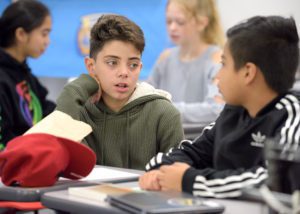
With the passage of federal legislation in the 1970s, students with disabilities were guaranteed legal rights to access a public education that would accommodate their specific learning needs. Prior to guaranteeing the right to access education, it was common practice for students with disabilities to be actively excluded from public education settings. Federal legislation was intended to ensure that all students have the ability to access the public education system through the program of special education. (1)
The program of special education serves over 150,000 students across 295 Washington school districts. Special education provides services and supports to students with disabilities to help students access a “free and appropriate education.” In order to qualify for special education services, students must have their school performance “adversely affected” by one of the following qualifying conditions: (2) Read More
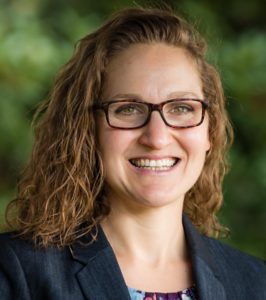 In our podcast, we interview policymakers, partners, and thought leaders to spotlight education policies, research, and practices so that together we can create a brighter future for every Washington student.
In our podcast, we interview policymakers, partners, and thought leaders to spotlight education policies, research, and practices so that together we can create a brighter future for every Washington student.
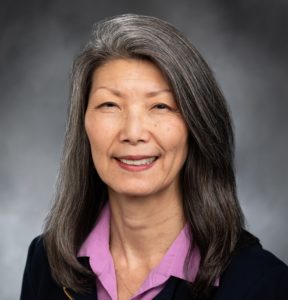 In our podcast, we interview policymakers, partners, and thought leaders to spotlight education policies, research, and practices so that together we can create a brighter future for every Washington student.
In our podcast, we interview policymakers, partners, and thought leaders to spotlight education policies, research, and practices so that together we can create a brighter future for every Washington student.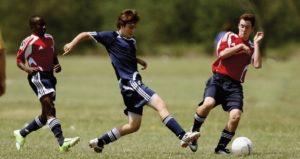 Expanded learning opportunities – afterschool, weekend, or summer programming for school-age students – promote academic achievement, leadership skills, and involve youth in their communities. Unfortunately, youth from low income families get the least exposure to family reading time, weekend day trips, preschool, summer camp, and afterschool programming, compared to their peers from non-low income households (1). It adds up to a 6,000-hour learning gap by 6th grade – and only gets wider as they enter junior high and high school (2). This learning gap has an impact on school attendance and performance, as well as students’ opportunity to be fully prepared for college or career. Ability to access afterschool and summer school programs also impacts student safety, because the hours between 3 and 6pm are those in which youth are most susceptible to risky or adverse behaviors (3).
Expanded learning opportunities – afterschool, weekend, or summer programming for school-age students – promote academic achievement, leadership skills, and involve youth in their communities. Unfortunately, youth from low income families get the least exposure to family reading time, weekend day trips, preschool, summer camp, and afterschool programming, compared to their peers from non-low income households (1). It adds up to a 6,000-hour learning gap by 6th grade – and only gets wider as they enter junior high and high school (2). This learning gap has an impact on school attendance and performance, as well as students’ opportunity to be fully prepared for college or career. Ability to access afterschool and summer school programs also impacts student safety, because the hours between 3 and 6pm are those in which youth are most susceptible to risky or adverse behaviors (3). 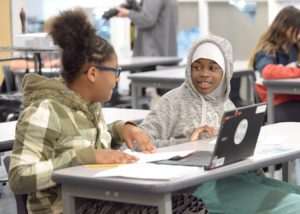 Students learn most effectively when their school feels safe, inclusive, supportive, and respectful (1). Creating positive school climates and providing student supports can mitigate the impact of trauma (2), mental health needs (3), and other non-academic factors that affect a student’s ability to engage in learning (4). It is instrumental in closing opportunity and achievement gaps in our system and improving student outcomes.
Students learn most effectively when their school feels safe, inclusive, supportive, and respectful (1). Creating positive school climates and providing student supports can mitigate the impact of trauma (2), mental health needs (3), and other non-academic factors that affect a student’s ability to engage in learning (4). It is instrumental in closing opportunity and achievement gaps in our system and improving student outcomes.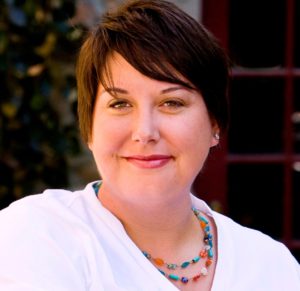 In our podcast, we interview policymakers, partners, and thought leaders to spotlight education policies, research, and practices so that together we can create a brighter future for every Washington student.
In our podcast, we interview policymakers, partners, and thought leaders to spotlight education policies, research, and practices so that together we can create a brighter future for every Washington student.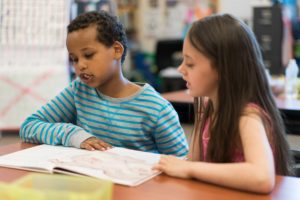 With the passage of federal legislation in the 1970s, students with disabilities were guaranteed legal rights to access a public education that would accommodate their specific learning needs. Prior to guaranteeing the right to access education, it was common practice for students with disabilities to be actively excluded from public education settings. Federal legislation was intended to ensure that all students have the ability to access the public education system through the program of special education. (1)
With the passage of federal legislation in the 1970s, students with disabilities were guaranteed legal rights to access a public education that would accommodate their specific learning needs. Prior to guaranteeing the right to access education, it was common practice for students with disabilities to be actively excluded from public education settings. Federal legislation was intended to ensure that all students have the ability to access the public education system through the program of special education. (1) In our podcast, we interview policymakers, partners, and thought leaders to spotlight education policies, research, and practices so that together we can create a brighter future for every Washington student.
In our podcast, we interview policymakers, partners, and thought leaders to spotlight education policies, research, and practices so that together we can create a brighter future for every Washington student.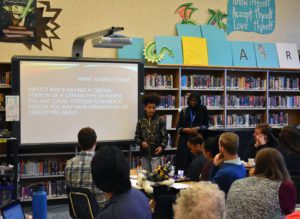 Last week, Trailblazers presented a professional development (PD) workshop on implicit bias for the entire educator staff at Washington Middle School, which was the first PD in the Seattle School District ever led by students. The session was led by Washington Middle School students Sona, an 8th-grader, and Kamilo (a.k.a. Bubbles), a 7th-grader. Sona and Kamilo told their personal stories and led discussions on what implicit bias is, which biases were in the room, why people have implicit bias, negative impacts of implicit bias, and solutions.
Last week, Trailblazers presented a professional development (PD) workshop on implicit bias for the entire educator staff at Washington Middle School, which was the first PD in the Seattle School District ever led by students. The session was led by Washington Middle School students Sona, an 8th-grader, and Kamilo (a.k.a. Bubbles), a 7th-grader. Sona and Kamilo told their personal stories and led discussions on what implicit bias is, which biases were in the room, why people have implicit bias, negative impacts of implicit bias, and solutions.